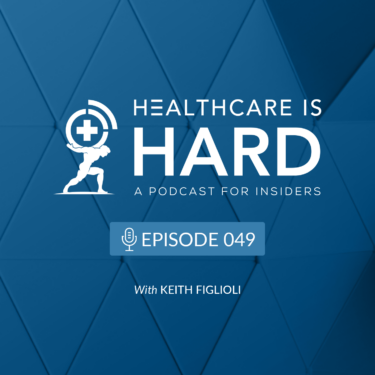
As the world emerges from the pandemic and U.S. health systems navigate a unique set of challenges they’ve never faced before, they’re fighting a battle on two fronts. They don’t have the luxury of dedicating all their resources towards the significant challenges they’re facing today. They also have to stay focused on innovation that will drive future growth, while finding the right balance between these priorities.
Health systems can’t make these critical decisions in a vacuum – that’s why the information and expertise they get from Sg2, a Vizient company, is critical. As the nation’s largest health care performance improvement company, Vizient serves more than 60% of acute care providers. Sg2 provides these organizations with unparalleled insight into local market dynamics and helps them anticipate healthcare trends that will be key to their success.
John Becker leads Vizient’s Strategic Growth Solutions, including Sg2’s Intelligence, Analytics and Advisory Services, and the Vizient Research Institute. In this episode of Healthcare is Hard, John talks to Keith Figlioli about the issues that are top of mind for health system strategy and innovation leaders. They discuss topics including:
- Post-Covid collaboration. While the pandemic created extremely difficult conditions that persist today for providers, John sees a bright spot in how it taught their leadership teams to work together in different ways. As an example, he talks about how Sg2’s work extends more regularly beyond strategy teams and how those in other leadership roles are thinking differently about the future and their approach to competition.
- Innovating in a down market. John talks about the need to cut costs due to margin pressures, and the challenge health systems now face making sure they don’t cut areas that will drive future growth. He says he’s starting to see bifurcation in the market where strategy teams are splitting in two. One team is focusing on traditional care delivery and “same store growth,” while the other team works on reimagining the business altogether.
- The upside and downside of scale. As many health systems converge to drive efficiency through scale, diversification can help larger systems navigate difficult times. However as John points out, bigger ships can weather bigger storms, but it takes them much longer to turn. He says the key is centralizing certain functions and realizing that strategy deployment needs to incorporate the nuances of local markets where things like payer mix, employee base and demographics make a big difference.
- The CFO’s role in innovation. John says the most successful health systems right now are all finding the right balance around resource allocation, and he points out how the CFO is critical in achieving this. He says those that are too focused on costs are going to miss growth opportunities, and those that are focused too heavily on transformation will have trouble with operations. Carving out dollars to reimagine the business, while funding the core business at the appropriate level is a delicate balance, and one that savvy leadership teams are finding.
To hear Keith and John talk about these topics and more, listen to this episode of Healthcare is Hard: A Podcast for Insiders.
